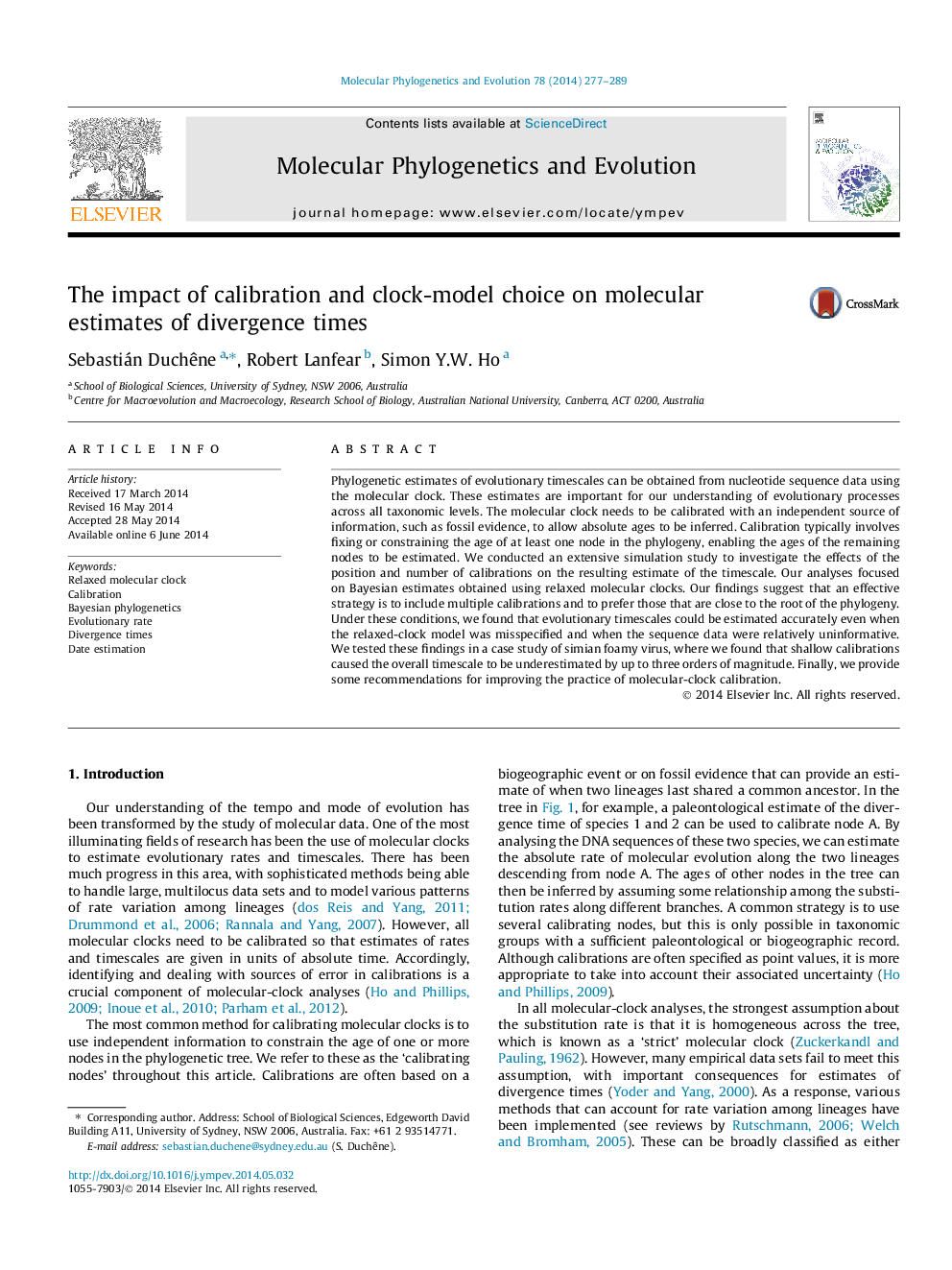| Article ID | Journal | Published Year | Pages | File Type |
|---|---|---|---|---|
| 5919306 | Molecular Phylogenetics and Evolution | 2014 | 13 Pages |
â¢Molecular clocks can be calibrated with probability distributions of node ages.â¢We use simulations to investigate the effect of the age and number of calibrations.â¢Molecular clock model misspecification is an important source of estimation error.â¢The best strategy is to include multiple calibrations and to prefer those at deep nodes.â¢Effective calibrations minimise estimation error due to clock model misspecification.
Phylogenetic estimates of evolutionary timescales can be obtained from nucleotide sequence data using the molecular clock. These estimates are important for our understanding of evolutionary processes across all taxonomic levels. The molecular clock needs to be calibrated with an independent source of information, such as fossil evidence, to allow absolute ages to be inferred. Calibration typically involves fixing or constraining the age of at least one node in the phylogeny, enabling the ages of the remaining nodes to be estimated. We conducted an extensive simulation study to investigate the effects of the position and number of calibrations on the resulting estimate of the timescale. Our analyses focused on Bayesian estimates obtained using relaxed molecular clocks. Our findings suggest that an effective strategy is to include multiple calibrations and to prefer those that are close to the root of the phylogeny. Under these conditions, we found that evolutionary timescales could be estimated accurately even when the relaxed-clock model was misspecified and when the sequence data were relatively uninformative. We tested these findings in a case study of simian foamy virus, where we found that shallow calibrations caused the overall timescale to be underestimated by up to three orders of magnitude. Finally, we provide some recommendations for improving the practice of molecular-clock calibration.
Graphical abstractDownload full-size image
